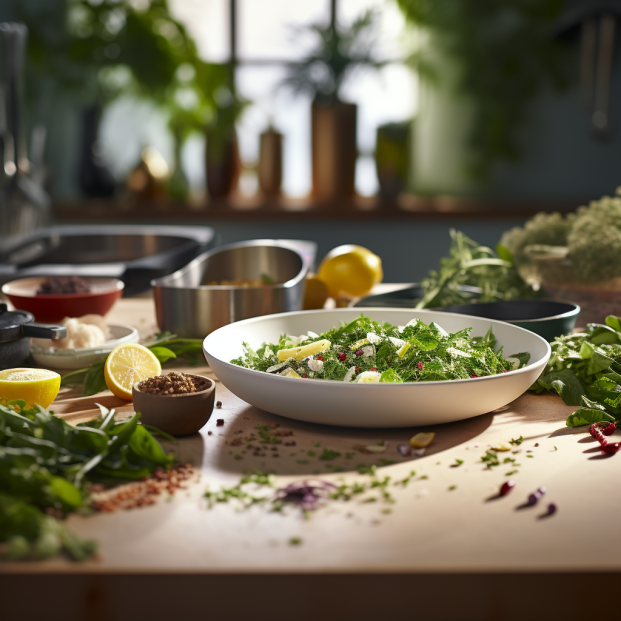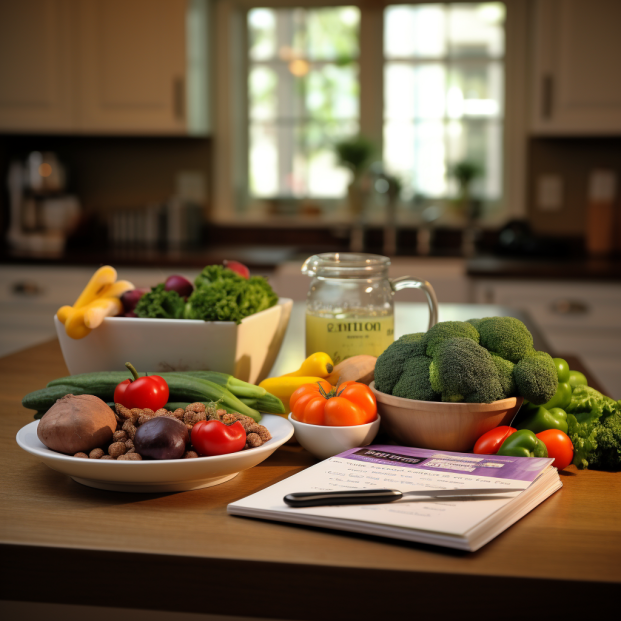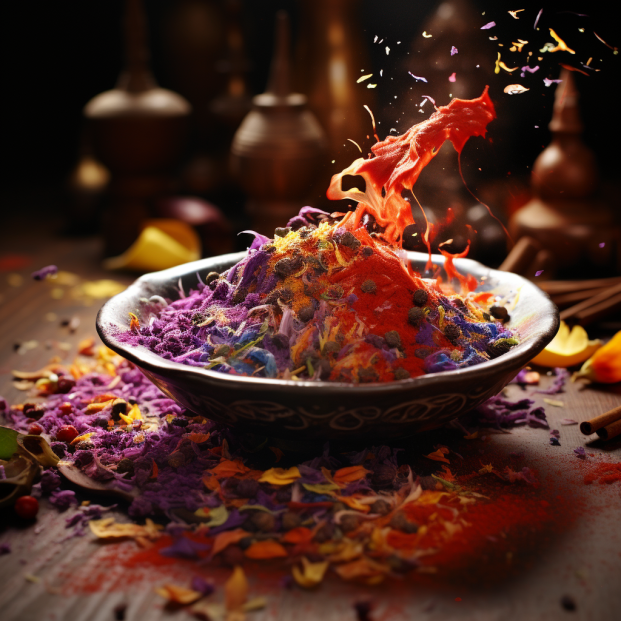
Soaking liver in milk before cooking is a common technique that supposedly helps to remove impurities, softens flavor, and tenderizes the liver.
According to Heartstone Farm, soaking liver in milk is said to be an “important step in removing the bitter flavor from the liver”. (1)
In this article, we will explore the science behind this technique and provide tips on how to soak liver in milk effectively.
KEY TAKEAWAY
Why do you soak liver in milk?
Soaking liver in milk is a culinary technique that not only enhances flavor and texture but also carries historical and cultural significance in traditional cooking practices.
Beyond flavor improvement, soaking liver in milk can contribute to a health-conscious approach by potentially reducing iron content,
Making it an informed choice for those mindful of their nutritional intake.
Understanding the Practice: Reasons for Soaking Liver in Milk

Soaking liver in milk before cooking works to mellow out the strong flavor through a chemical process.
Liver contains high amounts of heme iron, which gives it a metallic, bloody taste.
Milk contains casein proteins that help bind with the heme iron in the liver.
When the liver is soaked in milk (2), the casein proteins surround and encapsulate the iron molecules found in the liver cells.
This sequestering process physically separates the iron from interacting with the taste buds, reducing the perception of its strong metallic flavor.
The soak also triggers a breakdown of tissues within the liver cells.
As the tissues begin to gently break down and swell during the soak,
Flavor molecules like blood proteins and nutrients are slowly released into the milk.
This incremental leaching action over time further dilutes and distributes the strong liver flavors.
By the end of the soaking period, which typically ranges from 30 minutes to overnight,
The casein proteins would have tightly bound up much of the detached iron while the flavor compounds diffuse throughout the milk bath.
This pre-cooking process helps “tune down” the liver by leeching some of its more intense tastes and aromas.
When the milder-flavored, partially pre-cooked liver is then cooked,
Its flavor remains mellowed compared to raw liver cooked without any preparation.
The soak gives it a softened texture as well.
This simple soaking technique utilizes a basic chemical reaction to subtly alter the liver’s pungent character.
Just remember to use quality milk to soak the liver.
Neutralizing the Taste: How Milk Soaking Affects the Flavor of Liver
Soaking liver in milk leverages dairy proteins and enzymes to temper the strong flavor of this nutritious meat.
As the raw liver sits soaked in milk, ingredients like whey and casein alter the proteins and iron, decreasing the intensity.
The soaking process extracts some of the overt liver flavor while also tenderizing the meat so it turns out less chewy.
Cooks can also add lemon juice or swap out cow’s milk for non-dairy milk with similar effect.
Overall, preliminarily soaking the liver achieves better taste and texture.
The technique makes normally intense liver and onions or standalone cooked liver more friendly for the family dinner table.
Tenderization Benefits: The Science Behind Soaking Liver in Milk

Soaking chicken livers in milk before cooking can help make them more tender and enhance the taste of the liver. Here’s the science behind this technique:
- Milk contains enzymes that help break down connective tissue in meats. These enzymes gently tenderize the liver during the soaking process.
- Dairy products like milk are also effective at pulling out some impurities from meats. The milk helps remove any residual blood or bitter flavors.
- Many classic liver recipes call for soaking for a few hours before cooking to allow the milk to fully penetrate and work its tenderizing magic.
Soaking in milk is an easy extra step that can take your liver dishes to the next level!
Removing Impurities: Exploring the Effect of Milk Soaking on Liver Quality
Soaking organ meats like liver in milk doesn’t just tenderize it, but can also improve flavor. Here’s how:
- The milk helps remove impurities from the liver, pulling out blood, grit, and bitter flavors.
- Letting sliced liver soak in milk for even 30 minutes draws out undesirable flavors. Overnight is ideal.
- Drain off the milk (don’t drink it!) before cooking as it has pulled away impurities from the raw liver.
- Rinse the liver slices under water and pat the liver dry before seasoning and cooking.
- Many cooked liver recipes call for a soak in milk beforehand to prepare liver for the best texture and taste.
Give your next liver dish a milk bath for cleaner, purer flavor! The difference is noticeable.
Alternative Methods: Different Approaches to Preparing Liver for Cooking
While soaking in milk is a popular technique, there are other ways to tenderize the meat and mellow the strong taste of liver before cooking:
- Soak sliced liver in saltwater. The salt helps draw out blood and impurities.
- Soak liver in lemon juice or vinegar. The acid helps balance the mineral-rich, bitter taste.
- With foie gras, torching briefly before cooking caramelizes the outside.
- For grass fed liver, freeze first to help break down fibers.
- Pound slices thin before cooking for quick tenderness.
Get creative prepping liver to find what works for your palate!
Proper Technique: Steps for Soaking Liver in Milk Effectively

Want to give the classic milk soak a try? Here is the proper technique:
- Choose cold milk – whole milk works best.
- Slice liver about 1/2″ thick into individual liver slices.
- Place liver in a bowl and pour over enough milk to cover.
- Refrigerate for 2+ hours. Overnight is great.
- Drain, rinse under water, and pat slices dry with paper towels.
- Cook liver soon after in a hot pan like a cast iron skillet over medium-high heat.
- Only use milk soak technique with quality liver.
Following these simple tips helps coax out maximum flavor and tenderness!
Cooking Tips: Enhancing the Flavor and Texture of Soaked Liver
Cooking soaked liver properly is key to getting the best texture and tastes. Here are some expert tips:
- Cook soaked liver shortly after rinsing and patting dry.
- Use high heat like pan frying to get a nice sear.
- Cook for just 2-3 minutes per side depending on thickness.
- Check for a blush pink inside when sliced to ensure not overcooked.
- Sprinkle with garlic powder just before serving fried liver.
Following proper technique allows the tenderizing effect of the milk to really shine through in the finished cooked liver!
Culinary Diversity: Milk Soaking in Liver Preparation Across Cuisines
Soaking meat and organ meats like liver in dairy before cooking is a technique found across many cuisines globally:
- In French cuisine, soaking liver in milk is popular before cooking classic dishes like liver and onions.
- Italian cooks may soak calf or lamb liver in milk before breading and pan frying.
- German recipes sometimes call for an overnight milk bath to mellow liver.
- In Eastern European Jewish cooking, milk-soaked liver paired with onions is traditional fare.
The milk soak draws out impurities and unwanted flavors for cooked liver with cleaner, purer tastes across continents!
Frequently Asked Questions
Does soaking liver in milk remove the strong taste?
Soaking liver in milk for a long time before cooking is a common technique used to remove the strong taste of liver.
The milk helps draw out undesirable flavors from the liver.
It’s generally recommended to soaked the liver in milk overnight or at least a few hours in the refrigerator in a bowl of milk.
How else can I prepare liver to make it more palatable?
Another popular way of preparing liver is cooking it liver and onions.
The onions help mellow the flavor of the liver.
You can also soak the liver in water or salt water for a short period before cooking to reduce its strong taste.
Be sure to rinse the liver well under running water after soaking.
Seasoning with salt and pepper also enhances the flavor.
Can I eat liver raw?
It’s not recommended to eat liver raw as this may cause contamination from bacteria or parasites.
Liver should always be fully cooked before eating to destroy any harmful pathogens.
The cooking liver process makes it safe for consumption.
Most people find the texture and taste of cooked liver to be more palatable than raw liver.
How long should I soak liver in milk in the refrigerator?
There is no set time for soaking liver in milk.
Most recipes call for soaking liver in a bowl of milk in the refrigerator overnight or at least 6-8 hours.
A long soak allows the milk to adequately remove strong flavours from the liver.
You can also try soaking liver in milk for a shorter duration before increase the soaking time gradually to make it more palatable.
Can I use water instead of milk for soaking liver?
While milk is most commonly used, you can also soak liver in water as an alternative.
Soaking liver in water or salt water in the refrigerator for a few hours has a similar effect of reducing its strong taste before cooking liver.
The milk soaking method is preferred as milk is thought to gently soften the liver in addition to removing flavors compared to a plain water soak.
Can you soak liver in sage tea?
Some cooks recommend soaking liver in sage tea as an alternative to milk or water soaking.
The sage imparts an herby flavor to the liver while helping reduce its strong taste over several hours of soaking in the refrigerator.
Sage tea soaking is a less common method but can be tried for variety.
Conclusion
Soaking liver in milk helps draw out some of the strong flavors.
The milk has proteins and enzymes that react with the iron and vitamins in the liver.
This makes the liver lighter and milder tasting after soaking.
The milk also makes the texture more tender.
Overall, soaking liver in milk is an easy trick to make this healthy meat easier to enjoy, especially for kids.
The milk makes liver taste better.
Let me know in the comments if you try this method of preparing liver! I’d love to hear how it works for you.
References
- https://heartstonefarm.com/blogs/farmerdanblog/how-to-cook-beef-liver#:~:text=Soak%20the%20liver%20in%20a,Pat%20the%20liver%20dry.
- https://www.bewellclinic.net/how-to-calm-the-flavor-of-beef-liver/#:~:text=There%20are%20ways%20however%20to,for%2030%20to%2090%20minutes.
Related Articles
- https://milkwoodrestaurant.com/sage-tea/
- https://milkwoodrestaurant.com/lemon-balm-tea/
- https://milkwoodrestaurant.com/do-prune-juice-help-with-constipation/
Was this helpful?

I’m Mary R. Q. , a seasoned professional chef dedicated to elevating home cooking experiences. Through my expertise in the culinary arts, I provide practical cooking tips and insightful reviews of kitchen utensils on my blog, milkwoodrestaurant.com. As a passionate advocate for transforming everyday meals into extraordinary culinary adventures, I aim to empower home cooks with the knowledge and tools they need to create delicious and memorable dishes. I’m also an author of the book “1,001 Kitchen Tips & Tricks: Helpful Hints for Cooking, Baking, and Cleaning (1,001 Tips & Tricks)” which is sold on Amazon. Join me on a flavorful journey as we explore the art of cooking and the essential tools that make it a joy.










